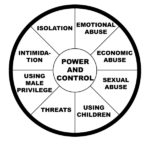We often put SO much focus on the wedding day that we rarely consider what’s coming later in the marriage itself. The marriage is what it’s about! So before you jump in, or get carried away with dresses and honeymoons, read over these 7 marriage essentials.
- Marriage is risky business – It is often said that with great risk there is great reward. But sometimes, especially if you are not prepared, things can go sideways and upside down quickly. That’s just a fact. This doesn’t mean that you should be paralyzed by fear, but it does mean that you need to realize that there are no guarantees. And you might consider investing in pre-marital counseling to help identify and prepare for possible risks while strengthening your loving bond and commitment.
- Marriage is work – Not only does it take work, but the union of two imperfect and evolving people is a work in progress. It doesn’t come easy. But it does not have to be burdensome. Like any great work of art, the work of marriage can be a creative and exciting transfer of energy that ignites growth and improves the quality of your life. You will have to put effort into it to make it happen, a whole lot more than you might imagine.
- Marriage is not a fairy tale – There is no mythical happily ever after. Yes there can be great moments of happiness and a deep feeling of contentment, but the story does not end there. Unlike fairy tales, marriage is a continuous journey of ups and downs and everything in between.
- Marriage is the joining of two individuals – Losing yourself is not a requirement for marriage. In fact it’s about valuing yourself enough to show up authentically in a loving and respectful way that fosters love, acceptance and growth. It’s about staying true to who you are while being part of something bigger than yourself.
- Marriage involves more than just two people – There are the in-laws, the friends, the kids, the boss. All these relationships have an impact on you and will also have an impact in your married life. In marriage you get it all.
- Marriage is an adventure – You’re creating as story together! One that will constantly be changing and evolving. It’s OK to make edits along the way. You may need to learn some new skills to fully embrace and enjoy this adventure of a lifetime.
- Marriage can be very rewarding – There’s almost nothing better than sharing your life with someone. There’s a reason that so many people do it! Be ready for the good stuff, because if you are open, realistic, willing to work and to give of yourself, the rewards are immense!









